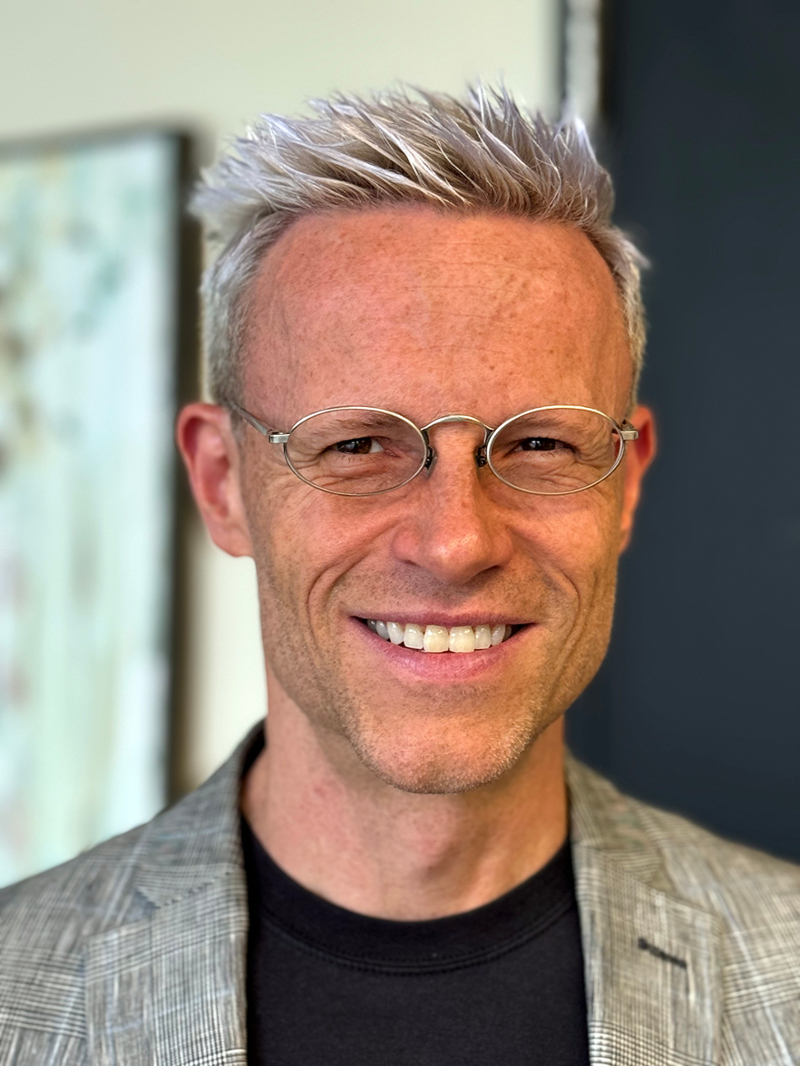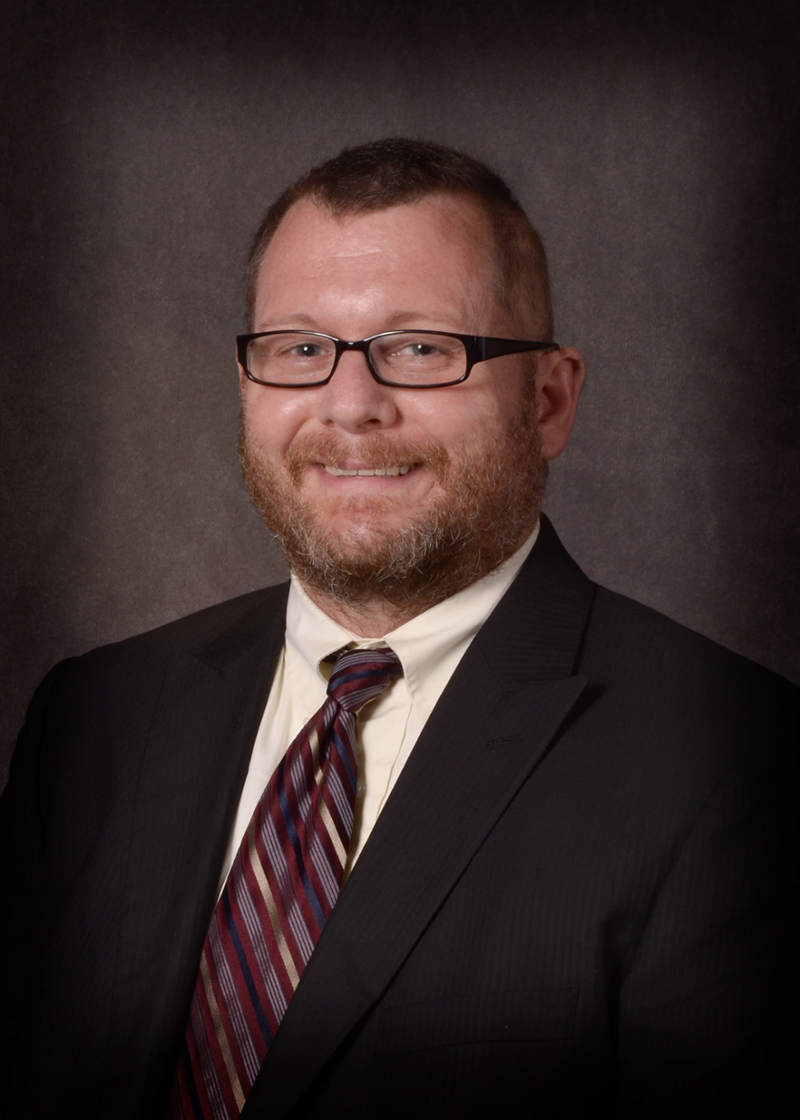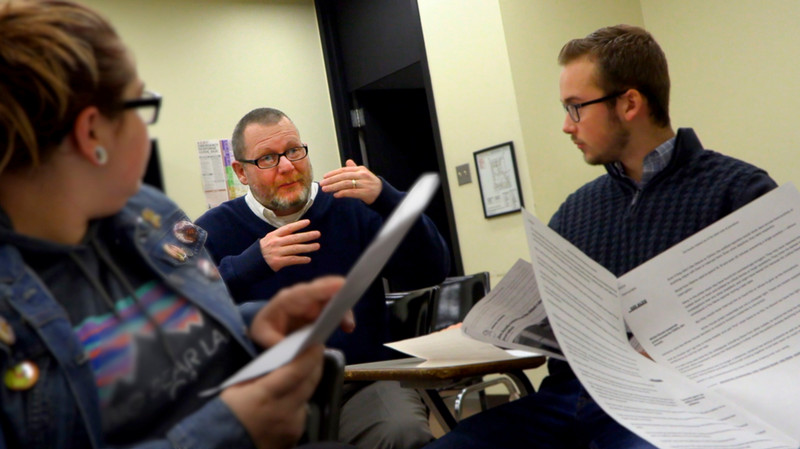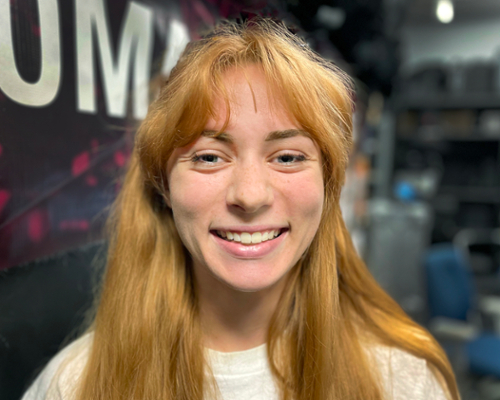CAMtastic Newsletter May 2024
Mont Allen Takes his Research and his Students on the Road to Rome
Associate Professor Mont Allen is fascinated with how Romans celebrated their dead, particularly with the art they used on burial containers.
“Funerary art in any culture gives privileged insight into what that culture holds dearest, what its values are, and so Roman sarcophagi gives us unique insight into what ancient Romans thought was most valuable about life and how they wanted to be remembered,” said Allen, who teaches classics and art history in the School of Art and Design.
His book, “The Death of Myth on Roman Sarcophagi” is about to be released in paperback, a first for any book on the topic. It traces the use of Greek Mythology as funerary imagery around 150 A.D. and how that imagery disappeared after a century of use.
“It has to represent some huge kind of cultural shift that you suddenly abandon Greek myth as the language for thinking about the world and for thinking about life and death and what matters, so that’s what my book addresses,” Allen said.
Greek myth was replaced by imagery of the four seasons, cupids frolicking, philosophers and other intellectuals contemplating timeless truths and scenes of shepherds with flocks.
Allen said the latter clearly inspired future Christian imagery.
“Christianity adopts the image of the Good Shepherd as a central figure for mentioning Christ because pagan Greek culture, out of which Christianity grew, had already become recently enamored of bucolic images of shepherds,” he said.
Allen will be sharing his fascination with ten students he is taking to Rome from May 23 to June 13.
“I cannot wait to watch their faces as they see the Coliseum for the first time, or just walk down the streets of Rome and inhale the smells and the sights and noises of the beautiful, incredible, life-affirming modern city,” he said.
Allen hopes to live vicariously through those students.
“I want to experience it through them, what they will get out of it, an appreciation for ancient Rome and the capabilities the Romans had at creating the most massive, colossal architecture, for their engineering prowess, but also for the deeply human, whimsical, quirky side that you realize Romans had, which you can only get if you look at their private arts.”
The students will see “hundreds of sarcophagi” as they spend “eight hours a day on their feet” traveling to museums in Rome and day trips to nearby towns. The group will be staying at St. John’s University, right near the Vatican.
Allen said it will be an intensive three weeks, worth six credit hours. It’s his first time arranging the study abroad opportunity.
“The logistics involved in getting it up and running the first time are horrific, they’re daunting. I’m just up to my neck right now. But I hope to be able to offer it every year or every other year. Although, let’s see if I survive this,” he said.
Once it’s over, Allen will spend time on a new research project he is “really excited” about. It involves the Romans’ penchant for wine imagery on their sarcophagi. That includes burial containers that resemble wine vats.
“The reason to image your dearly beloved is buried in a wine vat is because it invites the pleasing fantasy that your dearly beloved corpse is not moldering and rotting and purifying, but rather is fermenting,” Allen said.
He said the process of liquefaction of a corpse, which he admits is “ghoulish” to think about, is like what happens to grapes when they are pressed. Corpses actually turn red, purple and green, the color of grapes.
“So, it’ a change to imaging that this horrifying process that the body is undergoing is actually that they’re turning into a liquid that is intoxicating, elevated, even divine,” Allen said.
He notes some sarcophagi had holes drilled into them so that the living could pour wine directly onto the corpse.
“I think this metaphor simply invites them to imagine that the corpse is turning into the same honorific liquid that they are being bathed in,” Allen said.
He said he has become “quite familiar” with the most disgusting details about bodily decomposition and liquefaction. This includes the fact that human cells contain glucose which ferments into alcohol as bacteria interacts with it.
“We do literally ferment,” Allen said. “In fact, a decomposing body produces so much alcohol that this bedevils coroners attempting to find out whether someone died from alcohol poisoning or drunk driving. If you don’t measure blood alcohol level in a corpse ASAP, it’s going to be filled with alcohol,” he said.
Allen acknowledges it’s odd to be fascinated by such details, but it makes sense to him.
“It is only death that gives life meaning. It’s only in relationship to death that life has any meaning, any weight or gravity or significance at all,” he said.
Southern Illinois University Mourns Beloved Professor
Southern Illinois University professor Scott McClurg died April 13 after a long battle with brain cancer.
“Scott was a very good person. Very nice and considerate. Always positive and encouraging. His long fight with his illness was heroic. He will be dearly missed,” said Dong Han, an associate professor in the School of Journalism and Advertising.
Growing up in the St. Louis area, McClurg often swam in Coldwater Creek, which is now known to be contaminated with nuclear waste. He was the lead plaintiff in a lawsuit seeking compensation for the victims.
During the time of the Manhattan Project, Uranium for the first nuclear bomb was refined in downtown St. Louis and the leftover radioactive waste was dumped near the creek.
Many who played in the contaminated water or came in contact with it have had health concerns, including identical cancers.
“He lost so many classmates to different kinds of cancers,” said his wife, Jane McClurg.
While concerned activist group leaders in the area are working toward a resolution on a national level, there have not been any bills passed providing families with compensation for their struggles with the issue.
“I remember Scott once forwarded a news story on the nuclear dumping and the health problems of his high school class,” Han said.
Vicki Kreher, senior lecturer in the school of Journalism and Advertising said, “I sincerely hope something is done for the families of those who were affected by the Coldwater Creek contamination.”
McClurg held a Ph.D. From Washington University. He joined the Political Science Department at SIU as a full time Assistant Professor in 2001. He received tenure and became a full time Associate Professor in Political Science at SIU in 2007. He was promoted to Full Professor in Political Science in 2012, and joined the School of Journalism as a Full Professor in 2013.
McClurg served as Interim Director of the School of Journalism and Advertising as well as Interim Chair of Political Science.
He is most recognized for his application of social network analysis to the study of political communication, with a particular focus on social influence.

End of Spring 2024: Reflecting Back and Looking Forward
As the year is coming to its end, many of us are thinking back to the times we’ve spent with friends, lessons we’ve learned both in and out of class, as well as how far we've come since the start of our college experience. While some people may be trying to savor every moment, many others might be counting down the days till they graduate. If that is you, this might be a great reminder you will have your whole life to stress about life after college and your career so take a breather and reflect on the people you've met and the fun you've had.
While reflecting, it's also giving you a prime opportunity to think about how you wish your experience might be different in the future. Do you wish you tried harder in classes? Some simple things to help might be setting a goal of how many hours you will spend studying and doing homework to achieve the grade you want. If you wish you spent less time procrastinating, set a timer every time you sit down to work until the next time you're allowed to break your focus. Remember that the homework isn't going away until you finish it, so the sooner it's done the sooner you're free.
If you would have liked to focus a little more on spending time with friends, start to schedule hangout time and have a weekly get together and don't stress yourself out by overbooking or agreeing to do too much work. If you do, you'll only be hurting yourself by being exhausted and doing mediocre work. Of course, this may sound a lot easier than it is but allow yourself to make mistakes and strive for the overall goal.
Try a bunch of different methods till you find something that clicks with you. For instance, part of mine for next year is that I want to improve my reel and my resume and start applying to jobs while also balancing work, school, and my friends.
So my plan is to be very strict with my time while still prioritizing work and school. So most likely I will be combining projects for my reel and portfolio with the time I spend with my friends by having them be on my set or the subject of my project. I also won't try to bite off more than I can chew. I will work simply and effectively trying to highlight certain aspects of my work in a way that does not overcomplicate things.
If you're graduating your resolutions might look a little different. You might want to set goals rather than resolutions, goals on where you might be in a few months, some short-term goals on where you might be living, if you will be working in your field, if you are planning on trying to work up a certain amount of money, etc. Also set goals for a little farther out maybe where you want to be in the next 3 years; where you want to be living, working, how much you'd want to make at your job, etc. And some goals even farther away than a ten-year plan to look forward to are always something useful to keep you on a path going in the right direction.
We all know how new year's resolutions usually turn out. They last maybe a month after you set them and they are usually set in the time you're feeling the most pressure, adding to the chances of them not succeeding. However, if you are more focused on the goal and are open to problem solving when issues arise you will, more than likely, land pretty close to your goals helping future you know that it's possible and allowing you to feel pride in the outcome and in your resilience in sticking to it even when it became difficult.